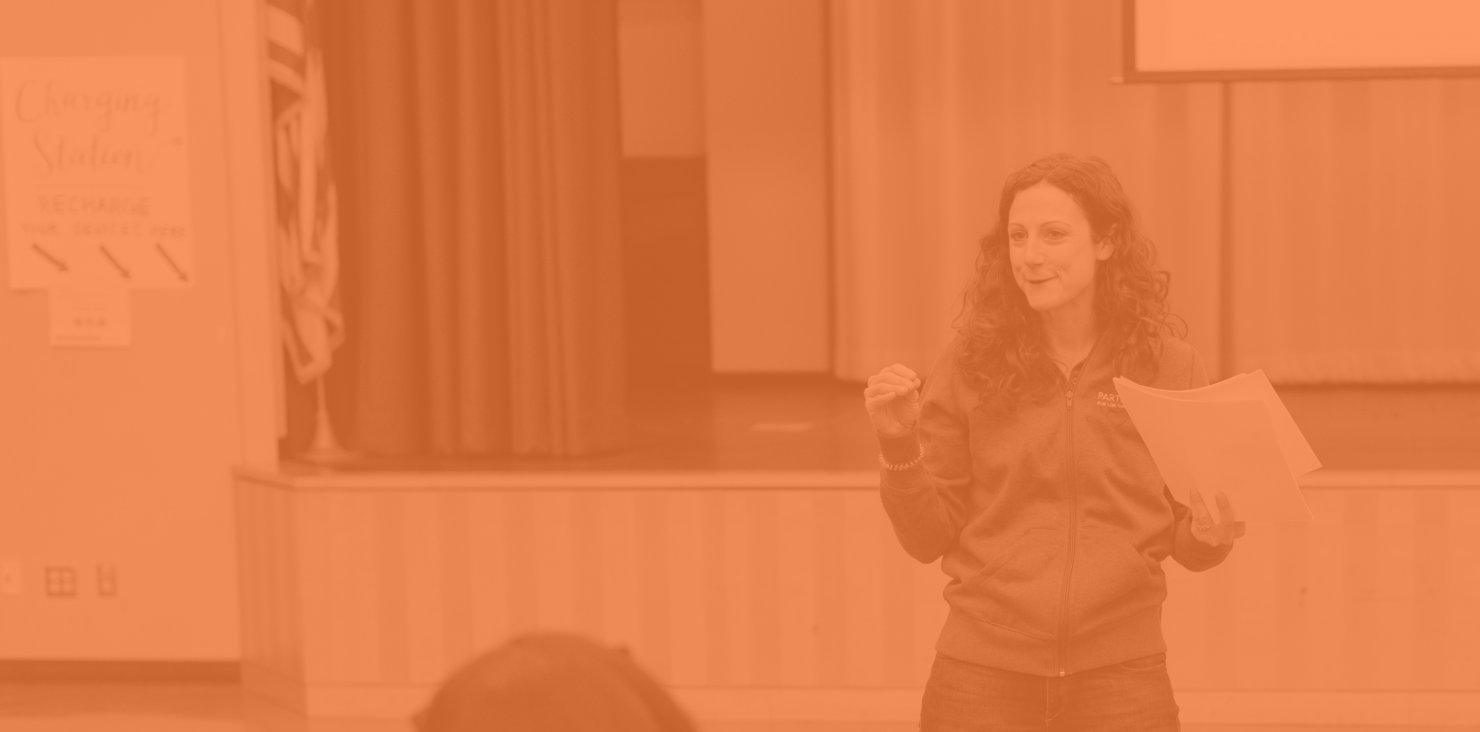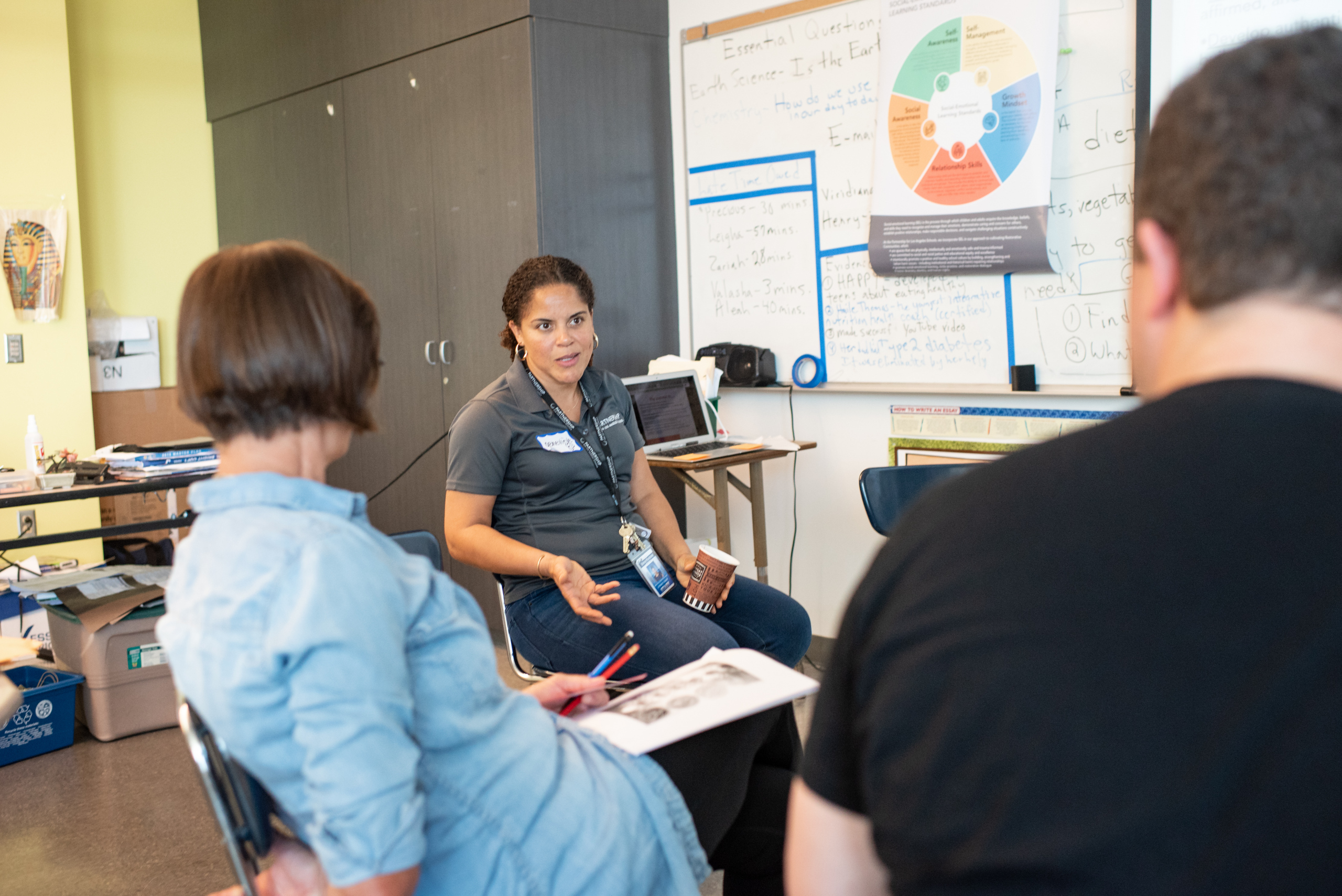
Curriculum & Instruction
inside our Practice
A shared vision for great instruction, adoption of a strong curriculum with support for implementation, and a culture of high expectations are critical levers for school transformation.
School districts often struggle to systematically address the needs of educators while also ensuring students consistently experience effective instruction across all schools.
Paired with the tailored leadership and professional development that school leaders and teachers receive, the Partnership provides aligned school-site supports to build systems focused on the implementation of standards-aligned curricula, data and assessment planning, and ongoing teacher coaching and support.

“The Partnership holds multiple professional development sessions with us, and individualized sessions by grade level. They also offer coaching, feedback, suggestions, and ideas. I don’t think I could do all my work without their support.”Anavelen Macias4th Grade Teacher & Team Lead
Grape Street Elementary

Aligned Curriculum
Over the first two years of new curriculum implementation, 20th Street Elementary, the fastest improving elementary school in LA Unified in 2016-17, more than doubled the percentage of students meeting or exceeding standards in math (using Eureka Math instead of MyMath), growing from 17% to 43%.
In order for students to be academically prepared for the demands of college and career when they graduate from high school, they need access to grade-level work, teachers with high expectations, and differentiated supports to help them meet those expectations.
From the recently published TNTP report The Opportunity Myth, we know that students spend more than 500 hours per school year on assignments that are not appropriate for their grade and with instruction that doesn’t ask enough of them – the equivalent of six months of wasted class time in each core subject. The Partnership believes that, even in schools where teachers’ expectations and abilities to differentiate are still developing, high-quality curricula can act as a forcing mechanism to ensure that students have access to grade-level work and assignments. Research indicates that switching to a high-quality curriculum is one of the most effective interventions available, and that unlike other school improvement strategies, improved curriculum adoption and implementation can be done effectively and at scale.
What Sets the Partnership Approach Apart
We introduce high-quality curricula coupled with deep investment in teacher learning and support for implementation beyond the professional learning offered by the District. We do this because we know that the roll out of new curricula without appropriate levels of teacher support most negatively impacts students who already suffer from inequitable educational opportunities.
We model implementation of high-quality curricula, paired with strong professional support and coaching at our 19 sites, to show that this work is possible at scale.
data & assessment planning
No less important than high-quality, standards-aligned curricula, assessment provides “a roadmap to rigor” by measuring progress toward standards.
Much like the varied quality of curricular materials, we also see great variance in educator skill and comfort with using assessments and the data they produce in meaningful ways. While most educators and schools understand the importance of data and dedicate time to review and discuss overall trends and student-level data, we focus on building systems in our schools to respond to the data.
What Sets the Partnership Approach Apart
We focus on supporting our schools to have a comprehensive and balanced system of assessment that – along with summative and benchmark assessments – includes strong formative assessment practices present in every lesson to drive differentiation. This creates opportunities for school leaders and teachers to build their capacity in data management and data-driven decision-making to support continuous instructional improvements. We couple assessment planning with adequate professional support to keep it from feeling like a compliance directive.
We support school leaders to implement a culture of data analysis at their school sites and build out systems to regularly assess whether evidence-based practices are working effectively or need to be modified.
We work with each school’s Instructional Leadership Team (ILT) to build and implement a comprehensive plan for assessment, including varied types of assessment, data cycles that engage teachers and other stakeholders with summative and interim assessments, and common formative assessments for teacher teams.
Ongoing Teacher
Coaching & Support

“I choose to work at a Partnership school because they choose to partner with me and I’m never alone. The Partnership has empowered me to be a better teacher by giving me the tools that I need to thrive in the classroom.”Stephanie CurryTeacher, 107th Street Elementary
Our focus on equity and continuous improvement emanates in our approach to supporting instruction and improving teacher practice.
Large, urban school districts don’t often have the resources to invest in direct coaching or in capacity building to lead this work. In Los Angeles, our visibility into schools indicates that many coaches aren’t actually even coaching – they’re being utilized to test students, support teachers with tasks like photocopying, or to pull students for intervention supports.
We recognize the ways that direct coaching and support from Partnership staff to improve practice is a stop-gap method that wouldn’t be needed if systems in schools were fully functioning and could deliver and coordinate these supports on their own. The reality in our schools – and other high-need schools across the country – is that direct and targeted supports are still required if we’re going to close equity gaps and reverse decades of underinvestment in high-need schools. At the same time, we aspire to gradually release our direct support and shift to a place of capacity building where we are supporting school leaders, instructional coaches, and teacher leaders to coach teachers and sustain systems that improve instruction.
What Sets the Partnership Approach Apart
We believe that the biggest lever in changing teacher practice is coaching and direct feedback aligned with formal professional development. To this end, we train school leaders to be coaches first, and to use student performance data to differentiate support for teachers to strengthen their pedagogical practice. Teacher leaders serve as critical peer coaches for professional development in schools.
Informed by student performance, observation, and other forms of data, we facilitate regular planning, coaching, modeling, and delivery of other instructional supports to schools. Coaching and support from school leaders, teacher leaders, and Partnership staff is coherently designed to meet the differentiated needs of each teacher.

